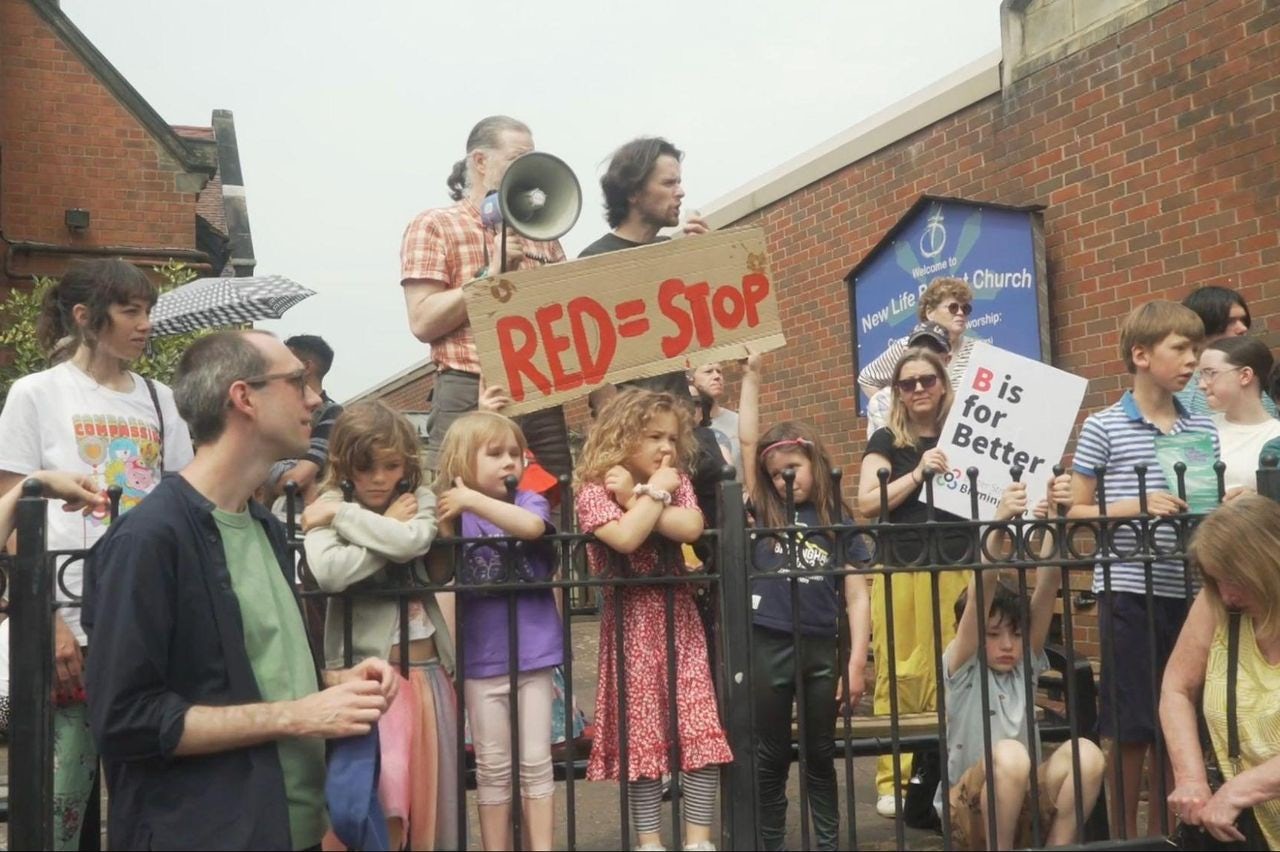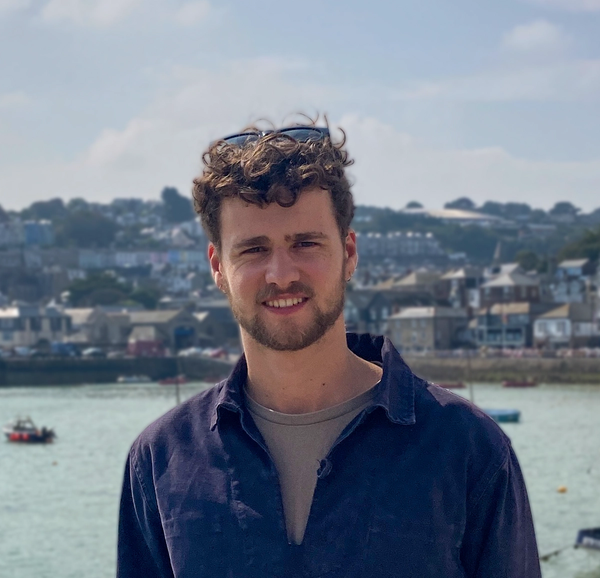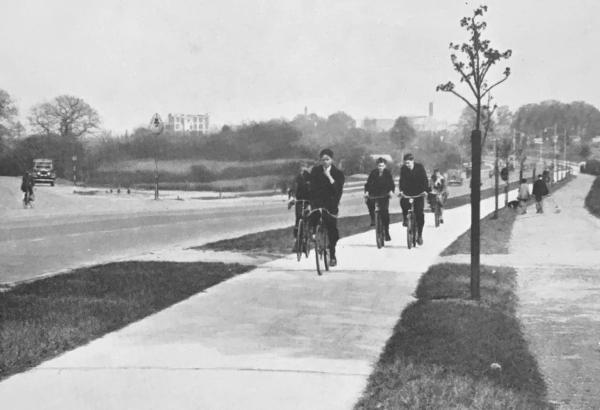UK-wide road safety protest taking place this Saturday: who are Safe Streets Now?
We speak to Mat MacDonald, one of the founders of Safe Streets Now, about their upcoming nation-wide protest
James Howell-Jones
Junior Writer
© Safe Streets Now
Protesters at the site of a hit and run in Birmingham
There are so many studies, opinions and articles about how we can make our towns and cities safer, but at a certain point, we need to stop talking about theories and methods, and start pushing for real world change. That’s the view of Mat MacDonald, one of the founding members of Safe Streets Now (SSN), a grassroots coalition of community groups that is focussed on creating change through protest and action.
On Saturday 20 April, SSN are holding their second ‘Day of Action’, in which they are encouraging people around the UK to take to the streets to express their concern about the safety risk posed by cars. Backed by a range of organisations including Kidical Mass, RoadPeace and Action Vision Zero, SSN are heading into their biggest event yet with a lot of momentum.
Their goals are twofold. Firstly, they want to remind the British public that it is not acceptable for five people a day to be killed on the UK’s roads. Secondly, they want to demonstrate to those in power that across the UK, loads of people want changes that restrict cars and make the roads safer.
As plans for the Day of Action took shape, we spoke to MacDonald to find out more.
Read more: Jeremy Vine interview: I just couldn't accept I had to risk my life to get to work
A little less conversation, a little more action
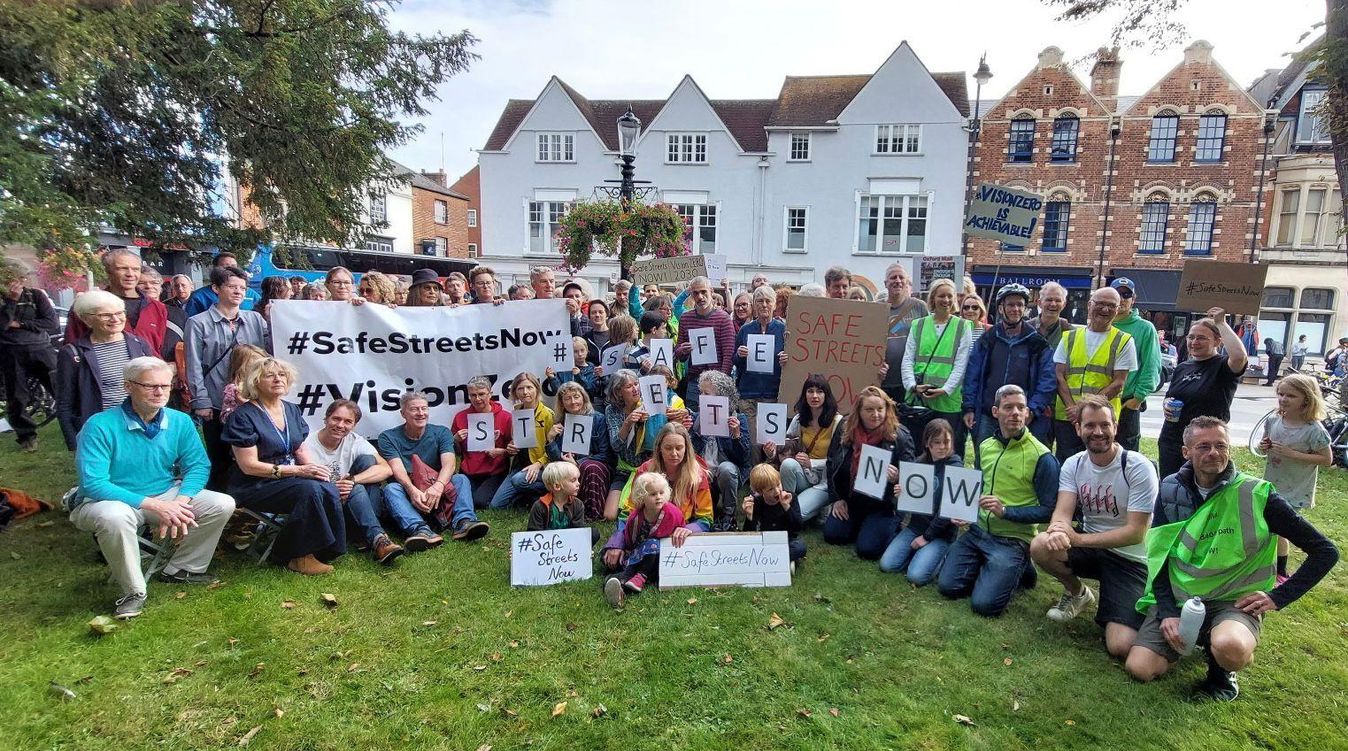
© Safe Streets Now
Safe Streets Now protesters in Oxford
MacDonald is as familiar with the debates surrounding active transport and road safety as anyone. He’s read the studies, joined the conversations, and heard the solutions. But instead of getting caught up in theory, MacDonald and the SSN campaigners have focussed on broadening the message and spreading the word.
“Most people don't spend their time thinking about bollards and cycle lanes,” he explains to GCN. “But most people really do care about their kids getting to school safely, or about being able to just go out and do their shopping or go about their business without this constant threat of physical danger.”
By focusing on the impact that car-centricity has on people’s lives, the SSN campaigners hope to bring people who wouldn’t think of themselves as active transport advocates on side.
“Most people will have found themselves inconvenienced, endangered, anxious at the state of the roads at some point in their lives, just because of how pervasive a problem this is.
“However, because of the culture of acceptance and the insidious growth of what we would call ‘motor normativity’, people don't treat that danger with the same sense of outrage as they would if it was a completely new harm or new danger.”
According to road safety charity Brake, someone is killed or seriously injured every 16 minutes on UK roads. That figure has remained more or less the same for the past decade, and as a result, the danger posed by road traffic has become perceived by many as a necessary evil. SSN are on a mission to prove that that isn’t the case.
“What we're trying to do is say, ‘Hang on, these dangers exist’, number one. And we can objectively show that by going out and counting the number of people speeding, or the number of people jumping a red traffic light, or the number of people on their phones.
“But also, we’re trying to show that we don't have to accept those harms as an integral part of the society we live in. We can challenge them, and we can demand better of our public spaces, of our leadership in enforcing standards, and so on.”
A carefully calculated protest
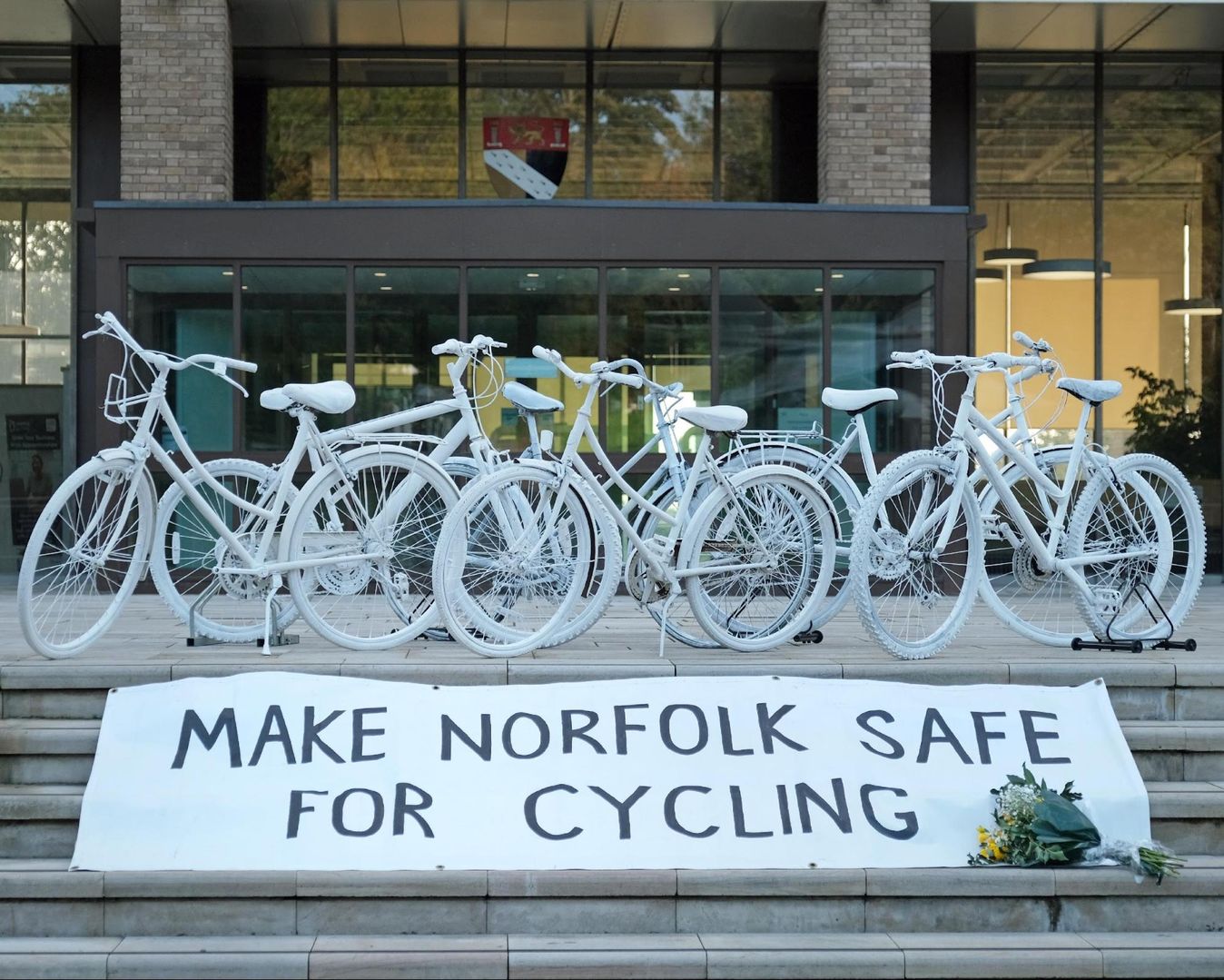
© Safe Streets Now
A powerful protest outside Norfolk council offices in memory of six cyclists killed on Norfolk's streets
To get that message across, SSN are encouraging people around the UK to protest on Saturday 20 April. Since SSN is a coalition of many different groups, there is no one single protest method. SSN encourages each of the different groups and organisations that are getting involved to find their own way to express themselves.
“In the September event, there were lots of really creative protests. In Norwich, they put six ghost bikes in front of the council building because there'd been six cyclists killed in the last few months, and they did a drone video of it, and that was really, really powerful.
“We've had other people making play streets, or just holding up signs saying ‘Safe Streets Now’, taking a photo of themselves and posting it on social media.”
MacDonald and his local group Better Streets for Birmingham have developed an ingenious protest structure that draws attention, without inciting public wrath — a vital line to draw, given their objective is to appeal to people in the middle ground.
“We call it the roving roadblock,” explains MacDonald. “You go out when there's a green pedestrian signal and you hold up signage. And sometimes you maybe hold the road for one cycle longer. At the end of the protest, we hold the road for a minute of silence.
“It’s really, really powerful whilst not particularly impeding the flow of traffic. And it’s all very carefully orchestrated so that were there any emergency service vehicles or whatever we would be straight out the road.
“It’s creating that tension, it's reclaiming the space, it’s producing these powerful images. And it's an effective media hook because it's just on the right side of civil disobedience to get attention without people being arrested or alienating significant numbers of people.”
Of course, any kind of protest is enough to anger the small but noisy group of car addicts on social media, but MacDonald says that the negative reactions from “vociferous trolls” only strengthen the SSN message.
“They're just getting really angry, but a lot of people are going, ‘Hang on, how can you get upset about people asking for safer streets when there's been a dead child?’ It doesn't make any sense. So they're shooting themselves in the foot.”
Read more: What causes road rage between cyclists and drivers? We spoke to a transport historian to find out
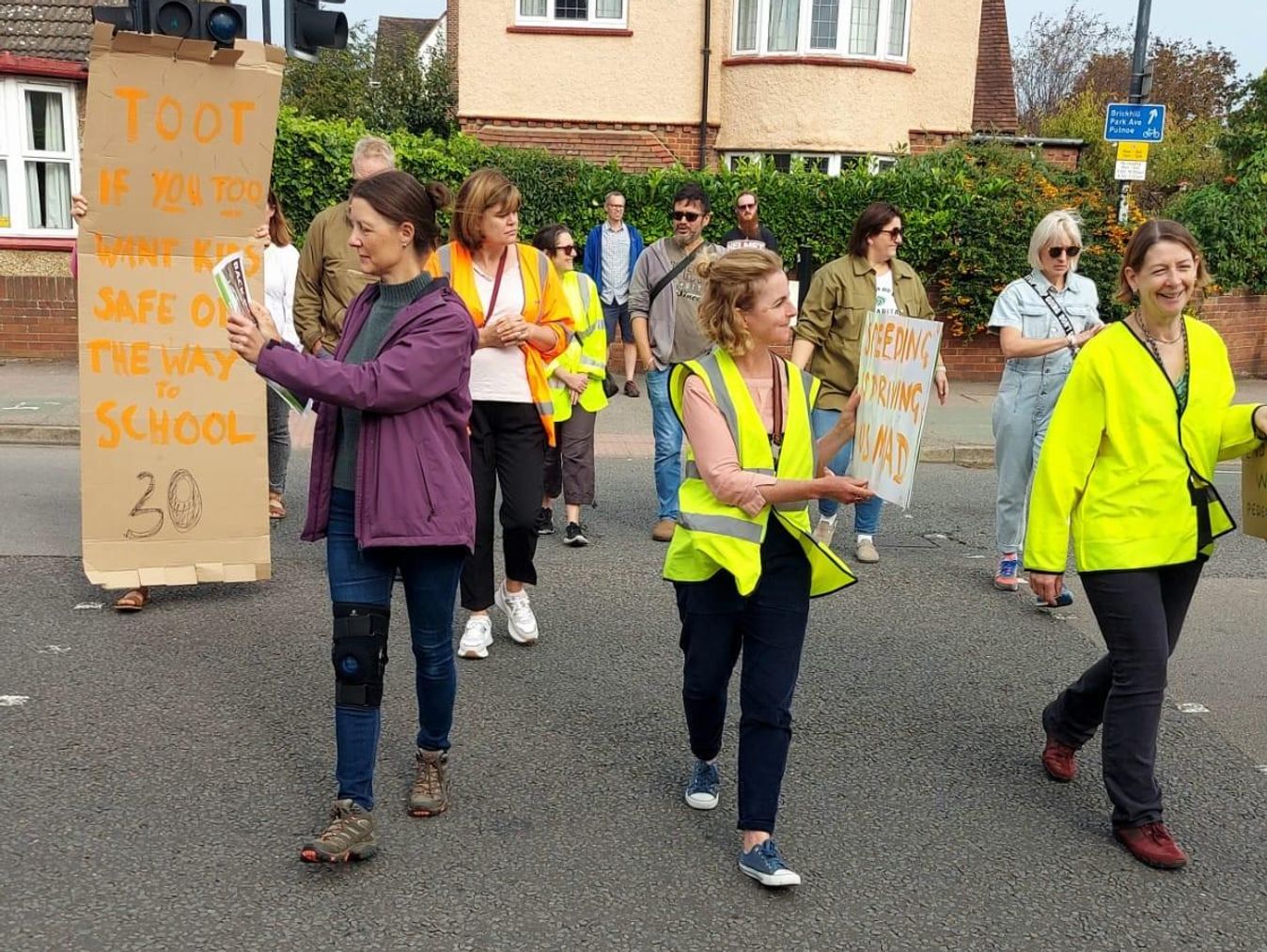
© Safe Streets Now
Safe Streets Now protesters hold the road in Bedminster
Safe Streets Now's origins
Safe Streets Now was formed as a response to road deaths in Birmingham and Manchester. After four people were killed in the space of a month in Birmingham, two of which were children, locals, including Mat MacDonald, began protesting as part of a group called Better Streets for Birmingham. Meanwhile, in Manchester, the death of a cyclist prompted locals to gather and campaign under a group called Walk, Ride GM.
After staging their own local protests, the two groups came together and began a national campaign.
“There is stuff that we can ask the council to do; that we can ask the local police force to do. But many of the solutions are going to be found at a national level in terms of primary legislature.
“Things like getting the sentencing council to look again at the fact that many of these drivers who kill people in the most awful circumstances are back behind the wheel within a few years, which we just think is simply unacceptable.”
Now, SSN has brought together local groups from across the UK, along with a collection of national road safety charities and organisations. The hope is that by giving some structure to small community protests around the UK, SSN will forge a powerful nation-wide message.
“It’s about sharing the common threads of our local experience and weaving that together into a narrative that advocates for the changes that we all need to see at a higher level to make a difference in our own communities,” he explains.
Read more: ‘Plan for the motorist’ sparks controversy with British Cycling and other outdoor organisations
April day of action
Saturday 20 April is SSN’s second National Day of Action, after a smaller event last September. At the time of writing, there are plans for 18 local protests, with 11 national road safety charities on board, and international movement Kidical Mass, who will play a vital role in this year's event:
"This year we are really excited to be working with Kidical mass, who are organising joy filled bike rids for kids at locations across the country in support of the day, really demonstrating what our streets could look and feel like if safety were properly prioritised in the way that we are demanding.
SSN are making it as easy as possible for more people around the UK to get involved, whether that’s by joining a local ‘action’ or starting their own in their local area.
“We're producing template flyers, we're producing template press releases, so all we need from people is literally a location for where they want to be on the 20th of April.”
MacDonald encourages anyone who wants to make the roads safer to be the change, and put on a protest in their local area.
“It doesn't really matter how big the crowd is at any one event, but the more locations that we have across the country who are saying the same thing, and particularly if they're tying it in with a relevant example to them of what's happened where they live, the more powerful this this cry for change becomes.
“Sometimes it’s just concerned individuals who approach us and put on an event by themselves.
“One of my favourite photos from our event last September is an action that was called by a group in Worcester, and it was just one or two of them. And in the end it was like, it was four, four people standing in a field holding a sign that just said safe streets now.
“But the thing is, they did it, and they added a point to our map. They made a noise, they helped the cause.
Read more: Fewer children are riding to school, says Bikeability
MacDonald encourages anyone to reach out and get involved.
“You'll get some people coming and you'll be part of a much wider process across the country that's demanding these changes. And you'll help empower your community to start thinking that actually things can be different.”
We’ve become so used to the risk that we take every time we travel on foot or by bicycle that most of us have accepted it as part of modern life. SSN wants more people to realise that those risks are not a necessary evil. Polls and surveys from Low Traffic Neighbourhoods and 20mph zones have shown time and again that most people prefer safe streets to convenient driving routes. It’s a fact that the protesters for SSN hope to make crystal clear this Saturday.
For more of the latest infrastructure and road safety news, check our general news page. For more interviews, visit our lifestyle interviews page.
